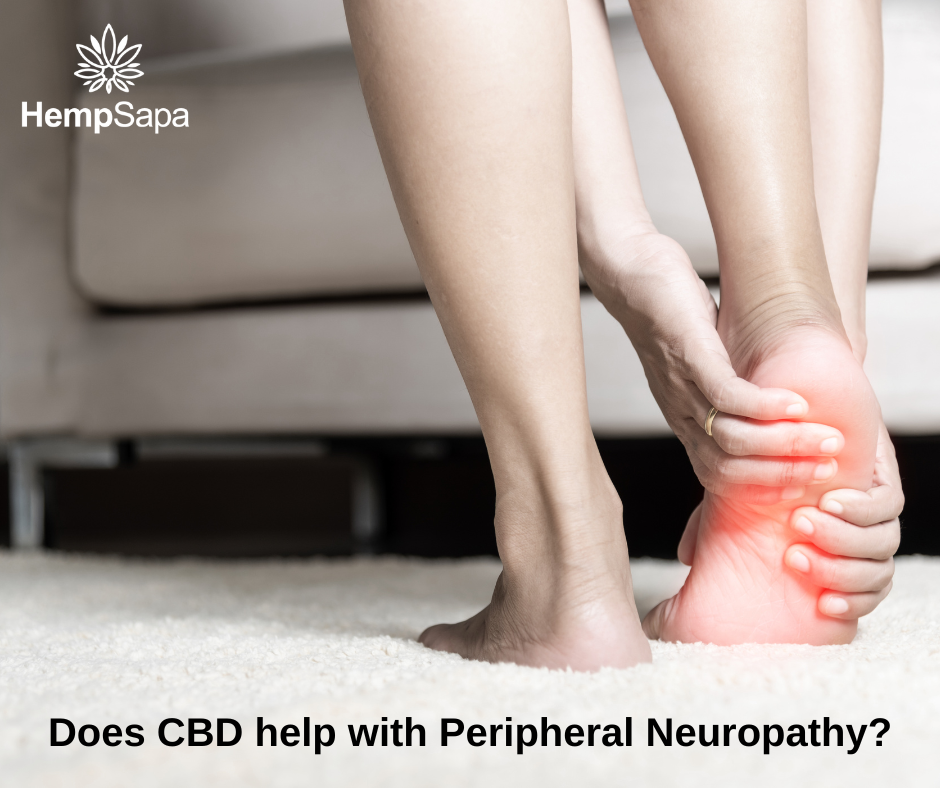Does CBD help with Peripheral Neuropathy?
About CBD oil and Neuropathy
Peripheral neuropathy is a chronic pain condition characterized by nerve damage. Nerve damage can occur following a physical trauma incident or several other causes, such as diabetes, alcohol abuse, infection, and nutrient deficiencies.
Generally, it is hard to diagnose and determine why a person is experiencing neuropathy. Thus, the physician may try various treatment options. Besides pain management, the doctors would aim to control treatable causes at the same time.
In some cases, therapy from current guidelines fails to achieve symptom remission, such as pain relief, and an individual may prefer to explore CBD oil for neuropathy. Additionally, patients may experience side effects of pain relievers, so they don’t take the medication prescribed. It is also the second reason why the drugs don’t provide adequate effectiveness. In this paper, we will provide evidence about using CBD for peripheral neuropathy and how to choose the right CBD products.
What do the researchers say?
The effectiveness of topical CBD oil in symptomatic relief of Peripheral neuropathy of the low extremities
This was a randomized and placebo-controlled study conducted in 4 centers during 4 weeks. A total of 29 volunteer participants with symptomatic peripheral neuropathy were recruited and received either topical CBD oil or placebo that was nearly identical to the active ingredient. Pain and specific sensation was evaluated at week 2 and 4 using the Neuropathic Pain Scale (NPC). The pain score was rated by patients on a scale of 0 to 10 with 0 being no pain and 10 being the most severe pain.
At week 4 of study, there was a significant reduction in intense pain, sharp pain, cold and itchy sensation in the CBD group when compared to patients receiving placebo.No adverse events were reported in this study.
The findings suggested that the use of topical CBD may be beneficial in the treatment of painful peripheral neuropathy, and larger studies should be conducted to determine the potential effects of CBD in treating peripheral neuropathy.
The use of THC/CBD spray in peripheral neuropathy
The treatment of neuropathic pain mainly focuses on symptom management, however there is little evidence to prove that this is an effective strategy. Among new therapeutic approaches researched to enhance the efficacy of treatment, CBD and other cannabinoid derivatives appear to have great potential.
A study was designed by a group of researchers in the UK to find the benefits of CBD and THC spray in patients diagnosed with peripheral neuropathy. In total, 303 patients were allocated to use CBD-THC spray or placebo in addition to standard therapy to manage pain. The maximum dose of THC-CBD spray was 24 puffs per day with each spray containing 2.5 mg and 2.7 mg of CBD and THC respectively. Main outcome was pain severity rated on a scale of 0 to 10 at baseline and at the end of study. When considering the number of patients showing 30% or more reduction of pain severity from baseline to week 15, there was 28% in the groups using THC and CBD spray, while it is only 16% in the placebo group. Besides, the patients also reported the improvement of sleep quality after using THC-CBD spray. No evidence of tolerance developing and few patients experienced severe side effects. Taken together, the study encourages the treatment of peripheral neuropathy with THC and CBD spray could bring significant benefits to patients.
In general, participants in the CBD group tolerated the CBD product well and showed significant reduction in the symptoms of peripheral neuropathy. In these studies, patients often use topical and inhaled CBD products to provide local effects and reduce adverse effects when used orally.
While these findings seem to be promising, researchers need to conduct further investigations on a larger population to confirm the results.
Experience in using CBD for neuropathy
There is no one size fits all dosage for CBD. What’s optimal mainly depends on a range of factors, such as body weight, tolerance, symptoms, metabolism, and so on. These factors can yield unique effects for each CBD consumer. Keep in mind that you should pay close attention to how you feel after each dose. It might not occur immediately, and you should be patient to remember that you’re unlikely to get immediate results. As soon as you experience positive effects, lock in that dose and stick with it.
With oral route, start at a dose of 20 milligrams per day (using twice or three times a day) and increase the dose gradually to achieve desirable effects. The recommended dosage forms are tablets, topical and inhaled CBD.
People considering or taking CBD products should always mention their use to their doctor, especially if you are taking other medications or have underlying ailments, such as kidney disease, liver disease, heart failure, or immunocompromised condition.
There are some minor side effects that need to be taken into account when using CBD, such as changes in appetite, dry mouth, fatigue, and drowsiness. However, those sometimes occur and CBD is considered safe for most individuals, excluding pregnant and nursing women.
Overall, it is vital that your doctor check your improvements, disease progression, side effects, and interaction with food or drugs at regular visits to make sure CBD is working properly. Pharmacists are also a reliable source to help you learn about potential drug interaction with supplements, over-the-counter drugs or prescribed drugs.
How to choose the right CBD products for nicotine withdrawal symptoms
You should buy the CBD products from reputable brand that provides:
- Third-party lab test
- Business certification
- Certificate of analysis (COA), no contain more than 0.3% THC and pass tests for heavy metals, pesticides, etc.
- Source of their hemp
- Product information (Brand, CBD content, ingredients, potency, route of administration, indication, instruction)
- Customers’ review
- No subject of FDA warning letter or make any unsupported health claim
Reference
- https://sci-hub.se/https://pubmed.ncbi.nlm.nih.gov/24420962/
- https://pubmed.ncbi.nlm.nih.gov/31793418/

